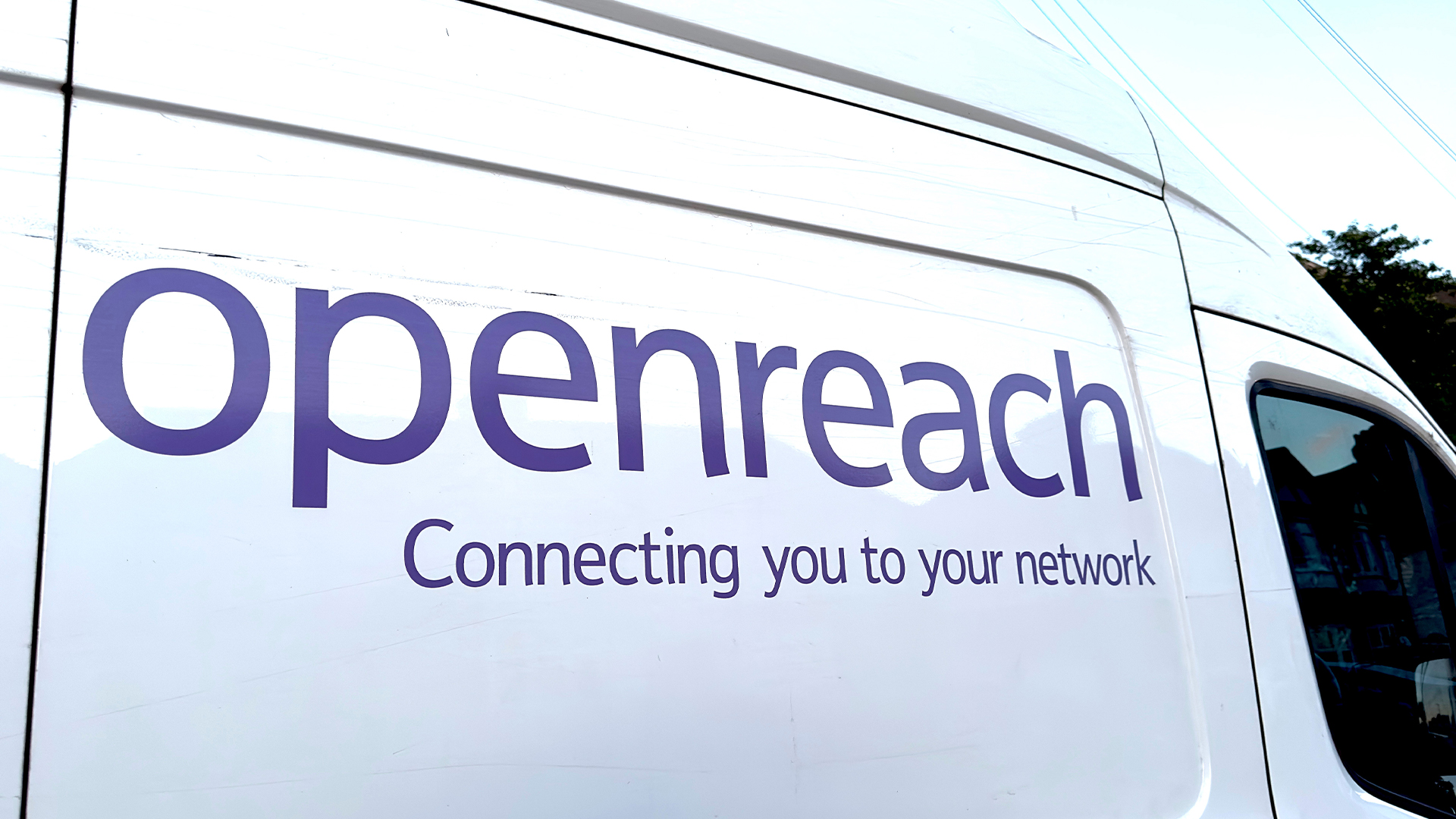Sponsored by BT
The analogue to digital switchover affects way more than landlines: Why small businesses need to take action now
The shift away from PSTN is about more than just new tech – sticking with the old system is not an option

As more UK businesses take part in the digital switchover, the private sector takes a step into a more connected, scalable, and innovative space. But many small businesses continue to rely on the Public Switched Telephone Network – despite the risks of doing so.
The most obvious impact of the switchover is that copper phone lines will stop working. Businesses that still rely on legacy phone systems to stay connected with customers and for operational purposes will need to adopt new technologies to overcome this barrier.
The impact of the digital switchover, for these unprepared firms, will be far more widespread.
“The analogue phone network is fast approaching its end of life. It’s decades old, and the aging infrastructure will soon no longer able to be maintained,” according to techUK.
“To meet these modern requirements and prevent the likelihood of increased failure rates of the legacy network, telecommunications providers are moving their customer base onto more future-proof telephone services.
“The UK isn’t the first country to make this move. Estonia and the Netherlands have already switched off their analogue phone networks, and Australia, France, Germany, Japan, New Zealand and Sweden are just some of the other countries that are also in the process of winding theirs down.”
One of the key points of the switchover is that any equipment that hasn’t been replaced or adapted to work with Internet Protocol (IP) technology will cease to function as intended. This has huge implications for the operational resiliency of many small businesses, so it should be front of mind for all leaders who haven’t yet migrated.
For example, legacy security and fire alarm systems may be connected directly to a company’s phone lines, so they will cease to work in 2027 if they are not upgraded ahead of the deadline.
Impacts of the digital switchover for the unprepared
There is a wide variety of legacy systems that currently rely on PSTN, all of which will need to be replaced or adapted to work with IP technology before January 2027.
Along with the aforementioned risk of alarms ceasing to work, businesses will have to audit their lift emergency phones, payment terminals, door systems, and utility meters to ensure all continue to work smoothly well into the future.
The impact of disruption to these systems can vary from the unfortunate and annoying to potentially life-threatening or economically catastrophic for a small business.
For example, if existing door systems aren’t replaced, a small business owner may find themselves temporarily locked out of their office or unable to easily open the door to potential customers. On the other hand, if an employee found themselves trapped in a lift and unable to call for help because the lift alarm wasn’t updated, leaders could find themselves looking at a workplace lawsuit.
Legacy payment terminals may also still be linked to phone lines, and these will need to be upgraded with modern, Wi-Fi or mobile network-connected terminals. Small businesses that fail to account for this may find themselves entirely unable to accept customer payments in February 2027, which would obviously have a profound impact on their bottom line.
There are some measures that businesses will need to take even after they have migrated equipment in recognition of the digital switchover.
Those who adopt IP phone systems, for example, will still need to account for difficulties such as outages, as digital phone lines do not work in a power cut. This has been acknowledged by the government and providers alike, as noted in a recent Commons Library report, and Ofcom has asked providers to provide mitigations such as battery supplies for small businesses and cloud-based communications services such as BT Cloud Work to mitigate any downtime that would otherwise arise from the switchover.
Ofcom also records 99% of UK premises now having 4G coverage and 62-85% having 5G coverage, providing further connectivity for workers in the event of a digital phone line outage.
The carrot and the stick
The degree to which the digital switchover will impact unprepared businesses shouldn’t cast a shadow over the great opportunities it presents to those businesses that go into 2027 having completed their migrations.
These businesses can enjoy streamlined operations, simplified costs for phone and alarm systems, and new functionalities that the old copper cables could never have supported.
For example, once the door systems mentioned above are replaced with IP-based equipment, business leaders will be able to access video and audio from their intercom wherever they are, for extra engagement with customers and added security.
Businesses looking to expand can also easily add more IP door systems running on the same network, without the need to extend cables or rewire doors. Leaders can even unlock more advanced features, such as controlling which employees can access which doors according to their keycard, with access editable on a rolling basis through the cloud.
Leaders can also seek to connect systems that were previously standalone, such as their CCTV cameras or alarms, into Internet of Things (IoT) networks.
These are an increasingly important component of many businesses, whether being used to monitor the perimeter of a site or provide live temperature data from a warehouse, and can unlock better visibility and improve existing systems massively. In the case of a break-in, for example, IoT-enabled CCTV cameras could push a real-time alert to a security guard, activate IoT-enabled alarms, and share a live feed with business leaders.
The digital switchover deadline was originally 31 December 2025, but the UK government backed an extension to 31 January 2027 in light of the potential impact on customers who were still reliant on PSTN in the lead-up to the deadline. But this is not a rolling deadline that can be put off forever.
Luckily, there’s also no reason for small businesses to navigate the digital switchover alone. Once leaders have audited their hardware and needs, providers such as BT are ready to supply the equipment and services necessary to dodge the downsides and embrace the benefits of the UK’s new network posture.
Sign up today and you will receive a free copy of our Future Focus 2025 report - the leading guidance on AI, cybersecurity and other IT challenges as per 700+ senior executives

Rory Bathgate is Features and Multimedia Editor at ITPro, overseeing all in-depth content and case studies. He can also be found co-hosting the ITPro Podcast with Jane McCallion, swapping a keyboard for a microphone to discuss the latest learnings with thought leaders from across the tech sector.
In his free time, Rory enjoys photography, video editing, and good science fiction. After graduating from the University of Kent with a BA in English and American Literature, Rory undertook an MA in Eighteenth-Century Studies at King’s College London. He joined ITPro in 2022 as a graduate, following four years in student journalism. You can contact Rory at rory.bathgate@futurenet.com or on LinkedIn.
-
 Mistral CEO Arthur Mensch thinks 50% of SaaS solutions could be supplanted by AI
Mistral CEO Arthur Mensch thinks 50% of SaaS solutions could be supplanted by AINews Mensch’s comments come amidst rising concerns about the impact of AI on traditional software
-
 Westcon-Comstor and UiPath forge closer ties in EU growth drive
Westcon-Comstor and UiPath forge closer ties in EU growth driveNews The duo have announced a new pan-European distribution deal to drive services-led AI automation growth
-
 Openreach wants enterprises to move quickly ahead of the PSTN switch-off, so it’s hiking prices on legacy services to push them into action
Openreach wants enterprises to move quickly ahead of the PSTN switch-off, so it’s hiking prices on legacy services to push them into actionNews Businesses face massive price hikes if they fail to act before the PSTN switch-off
-
 The move to a digital network and its role in the bigger picture of achieving true digital transformation: how SMBs can set themselves up for success
The move to a digital network and its role in the bigger picture of achieving true digital transformation: how SMBs can set themselves up for successSupported Beyond the dial tone, the digital switchover is the key to SMB success
-
 What exactly is IP, and why does it matter right now?
What exactly is IP, and why does it matter right now?Supported The future is calling: IP really will be a lifeline for small businesses...
-
 What is the digital switchover, and why does it matter to small businesses?
What is the digital switchover, and why does it matter to small businesses?Supported Adopting IP systems reduces costs and unlocks new innovation
-
 Is your small business ready for the move to digital? Key considerations and actions you need to take today
Is your small business ready for the move to digital? Key considerations and actions you need to take todaySupported From an initial plan to a full digital service, here is everything you need to know about the digital switch to an all-IP business
